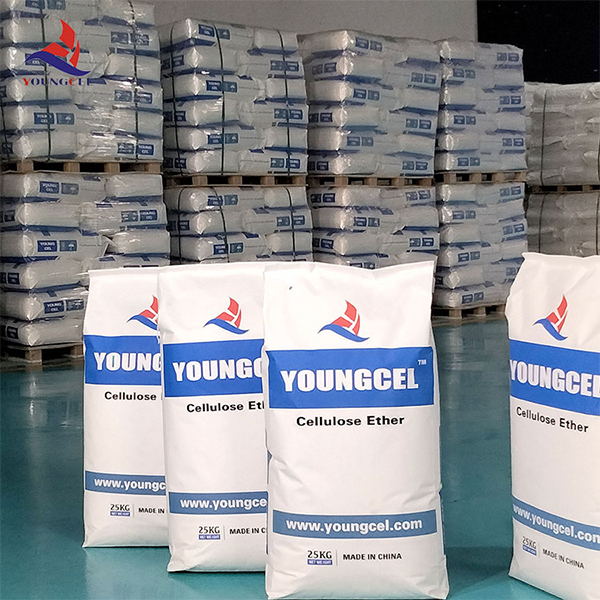The Role of Redispersible Polymer Adhesive Powder (RDP) in the Concrete Industry
In recent years, the construction industry has sought innovative solutions that enhance the performance and sustainability of building materials. One such solution is Redispersible Polymer Powder (RDP), an innovative material extensively used in concrete applications. RDP is a white, free-flowing powder formed from the drying of polymer emulsions. When mixed with water, it re-disperses to create a flexible and reliable adhesive that significantly improves the properties of concrete mixes and cement-based products.
Advantages of RDP in Concrete Mixes
1. Enhanced Flexibility and Adhesion One of the primary benefits of incorporating RDP into concrete is its ability to improve flexibility and adhesion. Traditional cement mixtures often lack sufficient elasticity, which can lead to cracking and structural failure over time. The polymers in RDP provide a level of flexibility that allows the concrete to accommodate minor movements and shifts in its structure, reducing the likelihood of cracks. This is particularly beneficial in regions with fluctuating temperatures where concrete may expand and contract.
2. Improved Workability RDP also enhances the workability of concrete. It acts as a binder that helps to improve the flow of the mix without adding excess water. This ensures that the mixture has a suitable consistency for easy application, especially in complex structures requiring intricate detailing. Using RDP allows for better cohesion among the materials in the mix, making it easier to spread and shape during the pouring process.
3. Increased Durability Concrete treated with RDP exhibits improved durability. The polymer not only enhances the mechanical properties of the concrete but also provides resistance to environmental factors like moisture, UV radiation, and chemical attack. This trait is essential for outdoor applications and structures exposed to harsh conditions. Consequently, structures made with RDP-modified blends are likely to have extended lifespans and reduced maintenance costs.
Applications of RDP in the Concrete Industry
1. Tile Adhesives RDP is heavily utilized in tile adhesives, where it enhances the bonding strength between tiles and the substrate. The flexibility provided by RDP prevents tiles from cracking or detaching due to thermal expansion or settlement of the substrate. This characteristic is crucial in environments like kitchens and bathrooms where moisture is present.
redispersible polymer adhesive powder rdp used in concrete industry

2. Self-Leveling Mortars In self-leveling applications, RDP plays a pivotal role in adjusting the viscosity and flow characteristics of the mortar. This results in an even application without requiring additional work to achieve a level surface. The binding strength also ensures that the material adheres well to various substrates.
3. Repair Mortars RDP is used in repair mortars to improve their bonding strength and flexibility. This is particularly important for repair work on aged structures, where the new mortar must securely bond with the existing substrate while allowing for some movement.
Environmental and Economic Benefits
Utilizing RDP in the concrete industry also aligns with growing environmental awareness and sustainability efforts. By enhancing the performance and durability of concrete mixtures, RDP can contribute to the reduction of material usage and waste. Fewer repairs and a lower frequency of replacement lead to decreased resource consumption, promoting eco-friendly construction practices.
From an economic standpoint, while there may be an initial investment in RDP, the long-term savings from reduced maintenance, increased structure longevity, and minimized repair costs justify the expenditure. Builders and contractors increasingly recognize that integrating RDP into their projects provides significant returns on investment.
Conclusion
The integration of Redispersible Polymer Powder in the concrete industry marks a significant advancement in construction technology. Its benefits, including enhanced flexibility, improved workability, and increased durability, make it an invaluable component in various applications like tile adhesives, self-leveling mortars, and repair products. As the industry continues to evolve, the emphasis on durability and sustainability will likely drive further adoption of RDP, paving the way for innovative solutions that meet the demands of modern construction practices while maintaining environmental responsibility. With its ability to improve performance and reduce costs, RDP stands as a testament to the potential of polymer technology in enhancing the concrete industry’s capabilities.
-
Rdp Powder: Key Considerations for Wholesalers in the Building Materials IndustryNewsJul.08,2025
-
Key Considerations for Wholesalers: Navigating the World of Hpmc - Based ProductsNewsJul.08,2025
-
Hpmc Detergent: Key Considerations for WholesalersNewsJul.08,2025
-
Key Considerations for Wholesalers: China Hpmc For Tile Adhesive, Coating Additives, Concrete Additives, and MoreNewsJul.08,2025
-
Crucial Considerations for Wholesalers: Navigating the World of Construction MaterialsNewsJul.08,2025
-
Key Considerations for Wholesalers Sourcing Additive For Cement, Additive For Concrete, Additive For Putty from Additive Manufacturer Shijiazhuang Gaocheng District Yongfeng Cellulose Co., Ltd.NewsJul.08,2025




